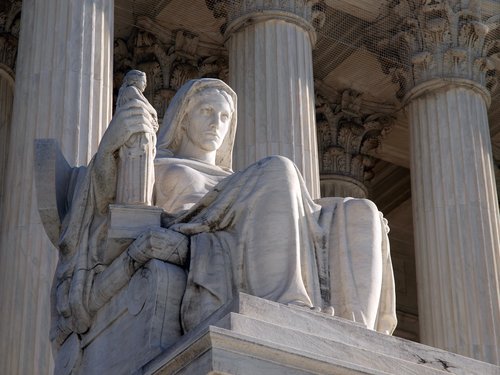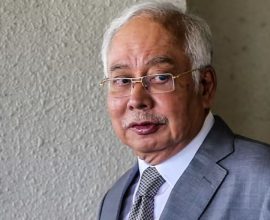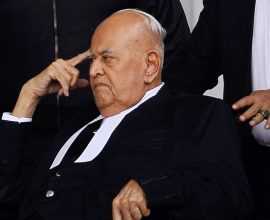Would you resign on a point of principle?
Will you resign on a point of principle? Someone asked whether a person must resign from a post, on grounds of principle. It created a debate. It went like this: One said she would not, for’ it was better to stay on, and fight’. Another said ‘a good man must leave’. He would not consort […]
Will you resign on a point of principle?
Someone asked whether a person must resign from a post, on grounds of principle.
It created a debate. It went like this:
One said she would not, for’ it was better to stay on, and fight’.
Another said ‘a good man must leave’. He would not consort with those who acted outside the norms of integrity and propriety.
A third said: –
‘It depends on who ‘me’ was’.
And he explained. Was he right? You tell me.
Suppose I had three children to feed at home, while caring for an ailing wife, and elderly parents, I’d bite my tongue and suffer in silence.
If I were a person who thought principles were so much baloney, I wouldn’t care.
This conversation reminded me of someone.
He would have answered the question in a different way.
He would have simply asked, ‘How far are you prepared to go, for what you believe?’
And once there lived a legend…
There was once a Supreme Court judge in Malaysia. A judge of the Supreme Court occupies one of the most exalted positions in the judiciary.
I met him in 1996. Perhaps he was 80. He was the arbitrator in a case. I was the claimants’ counsel.
The case had dragged on through many sittings. Many witnesses were heard and cross-examined.
Yet the judge had not sent us any invoice for arbitration fees.
I wrote to him. I asked if he had forgotten to bill us. I conveyed our (seven) clients’ anxiety that they could not pay a large sum should the arbitral bill be sprung upon them. These guys were earning less than RM5,000.00 a month. If the bills could be sent in parts and on time, our clients would be able to pay them. I had estimated that the total bill for our side alone would be, up to that point, nothing less than RM50,000.00 (USD12,320).
There was no reply.
Thereafter, there were numerous hearings. Our clients were getting increasingly anxious. But he said not a word about his fees.
One day, before one of our hearings had commenced, he took out a sheet of paper and pushed it across the table. He did the same to the respondent’s counsel. It was an invoice. I regarded it for a time, confused.
He called out my name. I looked up. He asked:-
‘Do you think I have gotten my decimal place wrong?’
I said,
‘Yes Sir. We have had more than 15 sittings. Yet this bill is for RM3,000.00 (USD740.00).’
This was because those days arbitrators would charge RM5,000.00 per sitting per day (USD1,230.00)
‘It is correct,’ he said.
As we rose at the end of the day, he said to both counsel,
‘This fee goes to the Church Cloister. I don’t take any of it.’
A question over some ‘Teh-O ‘
At the end of the arbitration he invited both counsel for a cup of ‘teh-O’.
He thanked us both.
We got talking.
I asked him if he would have done anything different had he another chance.
There was a reason for this question.
I must take you back to the year 1988.
In 1988 the Government tore into the independence of the judiciary.
This former judge recounts what that was like in his article, ‘Crisis in this Judiciary.’ It is at the Bar Council’s website. I suggest you read it. You would the better for it. It is written with a quiet voice, but the pace and contents are compelling.
In short, this judge and four of his colleagues in the Supreme Court formed a wall between the then national leadership, and its assault. The other four Supreme Court judges were Tan Sri Wan Sulaiman, Tan Sri Mohamad Azmi, Tan Sri Abdoolcader, and Tan Sri Wan Hamzah.
These five judges acted to protect the Constitution. They paid the price for their convictions They were parodied in the papers. They were pilloried in political gatherings. They were arraigned before an international tribunal. They were dismissed. Their wages were stopped and their pensions were cancelled.
This man, like his colleagues, lost everything for doing the right thing.
He stood steadfast.
He remained stoic and calm to the end.
The answer
So when I asked him the question, he regarded his tea mug for a while.
Eventually, he said: –
‘No.’
With a quiet, steely voice, he said,
‘I would have acted with greater certainty.
I would have acted earlier.
And I would have been far stricter.’
A parting gift
As he departed, he called me over, and gave me a handwritten note.
It cited a verse from the Old Testament. It was the chapter on Judges.
The quotation urges a judge to live by the highest integrity.
The Hidden Story
In his article entitled ‘The Hidden Story’, he says
‘History will exonerate me for taking a stand’.
And he continues with these words:
‘History will be the judge whether I was guilty of misbehaviour as charged for faithfully discharging the functions of a Judge of the Supreme Court of Malaysia conscientiously and with the highest regard for the preservation of an independent Judiciary.
During critical and crucial times in the history of a nation, judges are expected to be the standard-bearers of justice. This is a moral obligation and under the circumstance they are expected to act positively and with a clear conscience.
The five of us who were embroiled in this difficult episode of the 1988 judicial crisis did not rally around the suspended LP but rather responded to the call of duty in the interest of justice.
No matter how facts are twisted, in the eyes of God, Truth will prevail from the 1988 Judicial Crisis.’
Cutting through the swirling mists of time, these words fall upon us as would a sunbeam.
And there is one sentence which he never had the benefit of. It was written by Associate Professor of Law, Dr H.P. Lee of the Monash University. In June 1990 wrote a lengthy, well-argued article, analysing the charges and evidence brought against these judges . He said,1Lee, H.P., ‘A fragile bastion under siege – the 1988 convulsion in the Malaysian Judiciary’, Melbourne University Law Review [Vol.17, June 1990]
“Instead of finding a manifest case of ‘a clear abdication of responsibility’, Datuk George Seah should have been commended for acting in a most proper and responsible manner.”
I will never forget him; or what he stood for.
He fought for the rule of law and the separation of powers.
Not all of us can be like George Seah. Or his other, four, unflinching colleagues:-
Tan Sri Wan Sulaiman.
Tan Sri Mohamad Azmi Kamaruddin.
Tan Sri Abdoolcader.
Tan Sri Wan Hamzah.
But we can all aspire to be like each of them.
George Seah passed away on Saturday, the 20th of April 2013.
Did you know he was born in Miri, Sarawak?





